
Background information
5 good reasons to start the year with sports for all the family
by Michael Restin

Tobias Schär and his «Wir lernen weiter» (English: We keep learning) project have refurbished almost 4,000 old laptops and given them to new users in Switzerland. Now, refugees from Ukraine are also set to receive devices.
Pastoral care takes place at the bottom, digital care at the top. In the old rectory of Merenschwand, Canton or Aargau, dozens of used laptops are permanently spread out on long tables made of raw wood. This is where they’re freshened up and given a second life by the staff and volunteers of «Wir lernen weiter» (English: We keep learning). The team’s job is to check whether the screen, Wi-Fi module, keyboard and hard drive still work. There are blinking lights everywhere, accompanied by the quiet hum of fans. While the technical check is running, the team cleans the screens and keys with isopropyl alcohol. The smell of the cleaner mixes with that of the old beams in the attic. The village in which the historic building is located counts 3,000 inhabitants and is in the Reusstal valley.
This is the headquarters of «Wir lernen weiter». Headquarters ... that makes it sound like a company. And that’s exactly what it is; the «Wir lernen weiter» association is run according to the principles of social entrepreneurship. Tobias came up with the idea two years ago for a charity that provides laptops to those in need. Today, he’s able to make a living through his dedication to the cause, though he’ll sooner die trying than get rich from it. Just over a year ago, he completed his work-study track degree in Business Information at the Lucerne University of Applied Sciences and Arts (HSLU). Over a coffee, he confides that he could earn considerably more in a bank or a software or insurance company. He doesn’t sound mad or bitter about it – it’s just a matter of fact for Tobias.
Everyone has their price, but those who are after a feeling of purpose typically have to make compromises.
The 28-year-old has an approach to life that, roughly put, revolves around enabling others to have what’s a given for most of us – and that we sometimes forget to appreciate. This sets him apart from many of his peers, who search for the meaning of life among Instagram stories and TikTok challenges.
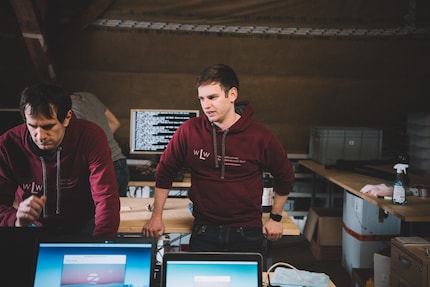
When Tobias first explained his project to me two years ago, he outlined an ambitious plan to scale up his idea. Since then, it has been put into practice one step at a time. He moved out of his parents’ house, started renting the rectory, and is now the general manager of «wLw», as he sometimes abbreviates his project. As such, he’s responsible for the operational management. Tobias lives with his girlfriend on the second floor, directly above the offices of the Catholic parish of St. Vitus. From there, a wooden staircase leads to the attic – where all the magic happens.
Music fills the room, which looks out on the mighty church tower next door. It’s Monday afternoon, and three men are busy working. They plug used laptops into the power cubes that are screwed onto the tables and boot the devices. The laptops stem from companies and private individuals who no longer need them. In companies, the IT department will often replace employees’ devices every few years. In the case of private users, old computers will likely catch dust in a drawer once the new one is up and running. Thanks to «Wir lernen weiter», these laptops can be given to people who desperately need one but can’t afford it. These could be individuals in the process of writing job applications they have to upload online; maybe they need to complete online exercises for language courses; or they may be in the process of completing an apprenticeship and need to document their work. «This is also a way for companies to prove that they care about society and give something back – and, of course, to show this publicly. This creates an expedient opportunity for collaboration for everyone involved,» says Tobias. He’s certain that wLw’s work has already made a big difference in many people’s lives – and that it lowers welfare costs by enabling better integration.
There have also been some organisational changes within «Wir lernen weiter». For one, Tobias is no longer part of the board and is instead employed alongside three other people. For over a year, all the work was done by volunteers only. Tobias explained that a project of this dimension simply couldn’t continue to be managed on a purely voluntary basis. «This was foreseeable – and necessary. As the general manager, I’m like any other employee; I could also be replaced if my performance isn’t up to par. Strategic decisions are made by the association’s board of directors – with information provided by the operative team.» Tobias is convinced that this restructuring was one of the most important steps in the association’s young history. And he’s clearly proud of it: «I had no idea that we’d have such an impact and even create jobs, all over the span of less than two years,» he says.
Demand appears to be high, even in the rich country of Switzerland. Tobias reports that between 40 and 50 computers are prepared and shipped each week. In peak season – when apprenticeships begin – that number rises significantly. Sometime in the next few days, the 4000th laptop will find its way to Merenschwand. Every device that arrives is piped into the association’s technical ecosystem. Key figures are registered, and then the laptop is processed further. The brains behind the sophisticated, highly automated system isn’t Tobias alone, but also Benj. Benj is an IT all-rounder and is constantly improving processes. «Without Benj, I’d probably still be setting up notebooks using USB sticks,» says Tobias. But by now, many things are set up automatically. Only packaging, cleaning and testing are still done manually.
Even devices with weaker chips offer enough power for you to work well, Tobias explains. To ensure this, the team wipes the computers completely and then sets them up with Zorin OS and open source applications – for example «Onlyoffice», which is a free alternative to Microsoft Office 365. That way, the computers are ready to use on arrival. More information and instructions are available on wLw’s wiki. Technical help is at hand on a forum, and there will soon be an e-learning platform where users can learn how to use a laptop on their own.
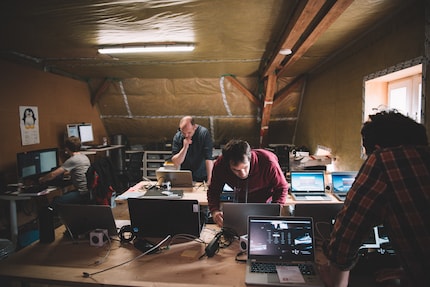
The team has a preference for business laptops from HP, Dell or Lenovo. EliteBooks and ThinkPads can be easily opened, and the components exchanged. For instance, the team may expand the RAM or replace old HDDs with faster SSDs. This saves time, which can then be used for fine-tuning and controls.
People in need of a device can order a laptop through their municipality or other partners. As of today, 600 of the almost 2,170 municipalities in Switzerland cooperate with «Wir lernen weiter». They determine the demand for computers at their location and forward requests to Tobias and his team. «Wir lernen weiter» receives 150 francs per device, which is how the organisation finances its operations. This flat rate is, as Tobias says, «a small but effective investment in integration and reintegration measures». According to him, computers allow people to integrate much better, be it linguistically or in the job market. Unfortunately, digitisation still plays far too small a role in social welfare, Tobias continues. The fact that people need IT equipment for many reasons is hardly given any consideration. Tobias wishes that the political dimension of the problem was better recognised.
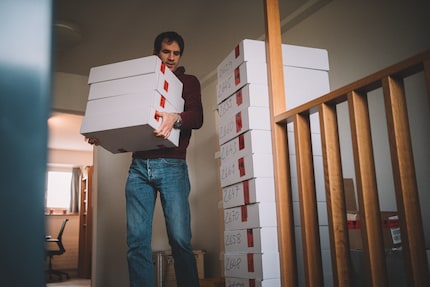
The consequences of Russia’s war against Ukraine pose a new, additional challenge for Tobias. Recently, he handed over a laptop to a family that fled Ukraine. Thanks to the laptop, the family can now stay in touch with their loved ones back in Ukraine, and the children can participate in school. Tobias suspects that, like this family, many others arriving in Switzerland are likely to have a need for a computer with Internet access. The authorities are currently taking care of the most necessary things such as accommodation and food. Tobias understands that laptops are not a top priority. But their importance shouldn’t be underestimated, either. «We’re happy to help however we can,» Tobias says.
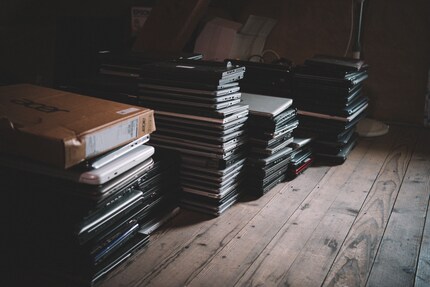
Laptops are currently being refurbished to be given to refugees from Ukraine on Saturday, 26 March, in Zurich. At the same time, private individuals and companies will have the opportunity to donate laptops that will be refurbished on site and handed out to someone in need in the afternoon. You’ll find all details about the event, which will take place at Kraftwerk in Zurich, here. A whole team of other volunteers will also be lending a helping hand at the info desk, for technical questions or as translators. «Now we just need enough laptops to gift to as many people as possible, and we do hope that this campaign will get media coverage. It’s an important issue that all of us can contribute to.»
To ensure that the people who receive the laptops can actually use them, the wLw team has developed a keyboard layout based on the Swiss layout and extended it to include the Cyrillic character set. Details like this are important to Tobias. He wants the operation to be a success. Looking to the future, he’s certain there will be repeat situations in other cities, too.
If you want to support the operation but can’t make it to Zurich on Saturday, there are other options to help. You can send your old notebook directly to «Wir lernen weiter». And don’t worry, the minimum requirements aren’t as high as you might think. If the display works and the computer has at least 4 GB of RAM, Tobias and his team can usually make it work.
Digitec Galaxus is also supporting the campaign: all people who either donate a usable laptop on Saturday in Zurich, participate as a helper or donate a laptop to «Wir lernen weiter» by 31 March 2022, will be entered into a prize draw for a chance to win a 500-franc voucher. In addition to the main prize, three other lucky winners will each receive a device that we, the editorial team, tested and no longer need. Which device exactly remains a surprise.
Journalist since 1997. Stopovers in Franconia (or the Franken region), Lake Constance, Obwalden, Nidwalden and Zurich. Father since 2014. Expert in editorial organisation and motivation. Focus on sustainability, home office tools, beautiful things for the home, creative toys and sports equipment.
Interesting facts about products, behind-the-scenes looks at manufacturers and deep-dives on interesting people.
Show all
Background information
by Michael Restin

Background information
by Martin Jungfer
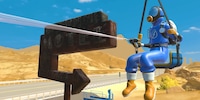
Background information
by Rainer Etzweiler